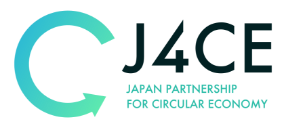Download: J4CE Noteworthy Cases/Initiatives 2024
Download: J4CE Noteworthy Cases/Initiatives 2022
Download: J4CE Noteworthy Cases/Initiatives 2021
Search for cases
* Multiple conditions can be specified
SEARCH
SUBCATEGORY
* Click here for examples of initiatives by each company.
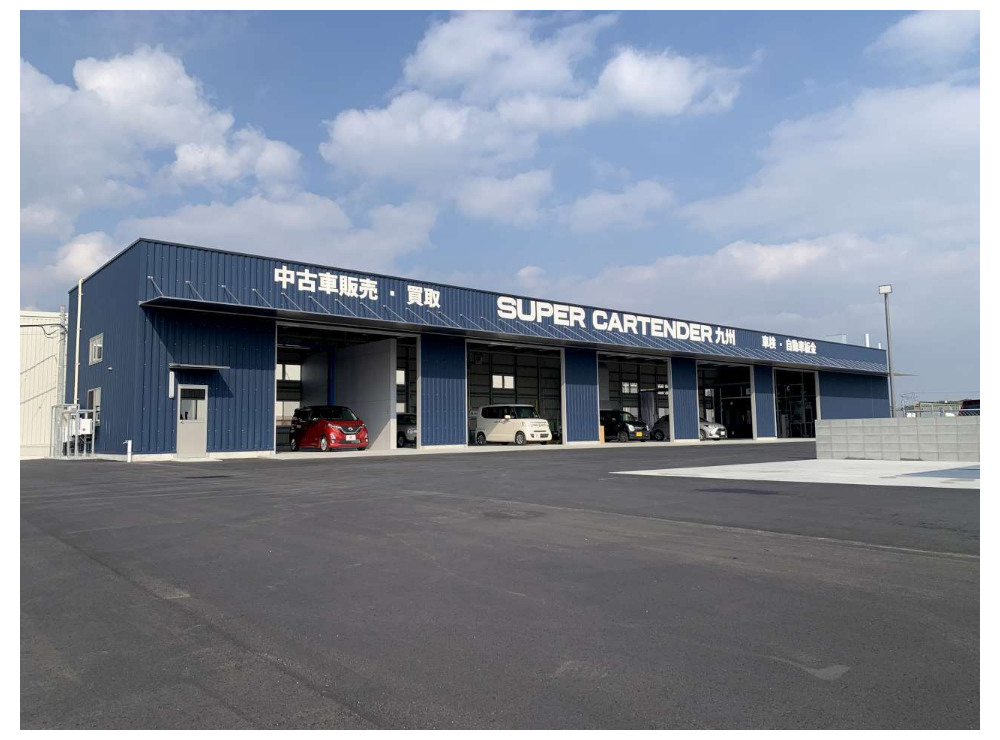
Super CARTENDER Kyushu/Recycle Town
TAU corporation
In January 2024, we opened “Super Car Triage Kyushu,” a complex facility in Miyaki town, Saga Prefecture, to consolidate our expertise in the reuse and recycling of damaged vehicles.
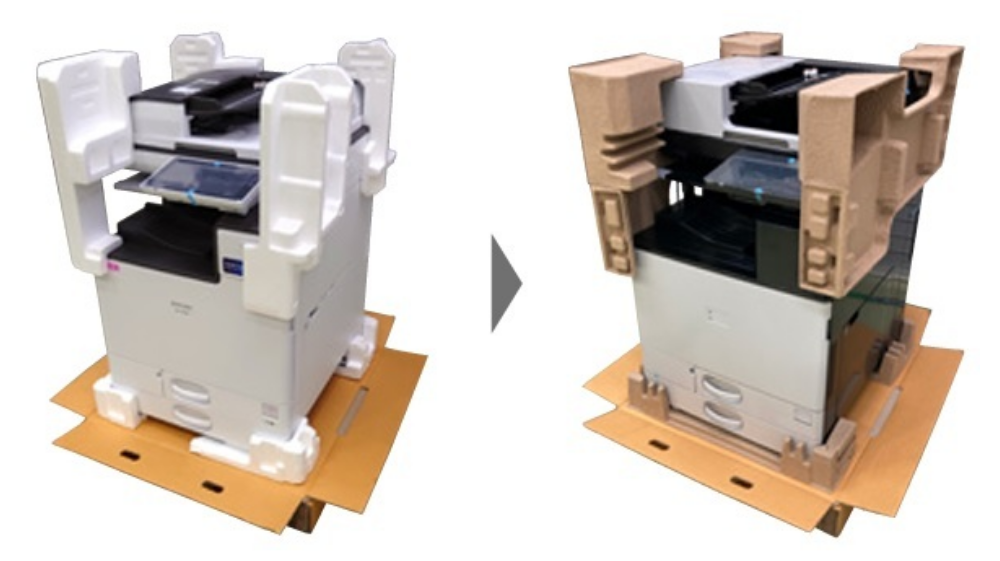
Switching from fossil resource-derived packaging materials to paper packaging materials for A3 MFP
RICOH Company, Ltd.
Until now, expanded polystyrene (EPS), a material derived from fossil fuels, has generally been used as packaging for transporting MFP products. The Ricoh Group is working to switch from EPS to recyclable paper packaging.
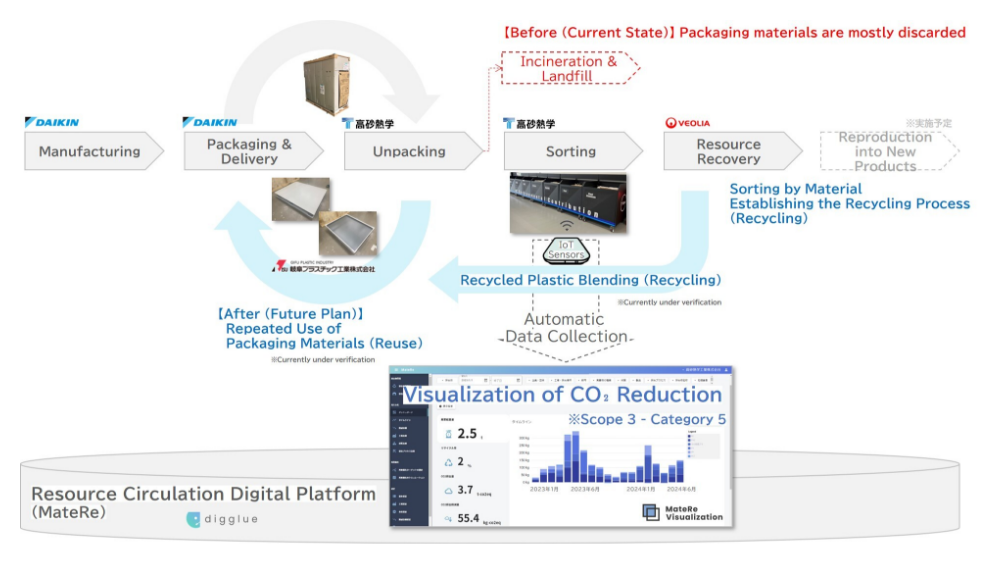
Accelerating resource circulation (3R) and decarbonisation at construction sites using a digital platform
Takasago Thermal Engineering Co., Ltd. DAIKIN INDUSTRIES, LTD. Veolia Japan GK Gifu Plastic Industry Co., Ltd. digglue.Inc
“Promoting Resource Circulation (3R) and Decarbonization at Construction Sites by Leveraging a Digital Platform” is an initiative launched by Takasago Thermal Engineering, Daikin Industries, Gifu Plastic Industry, Veolia Genets (Veolia Japan), digglue, and other partners across both supply and waste management sectors, aiming to reduce plastic waste.
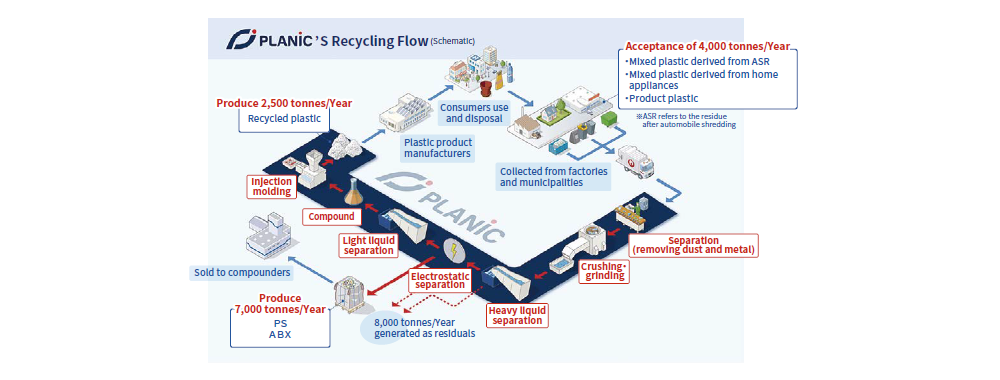
Achieving car-to-car recycling from plastic derived from scrapped automobiles
K.K. Planic Toyota Tsusho Corporation Kojima Sangyo Co., Ltd.
Planic not only recycles used plastics from automobiles and home appliances but also recycles product plastics such as used pallets and containers.
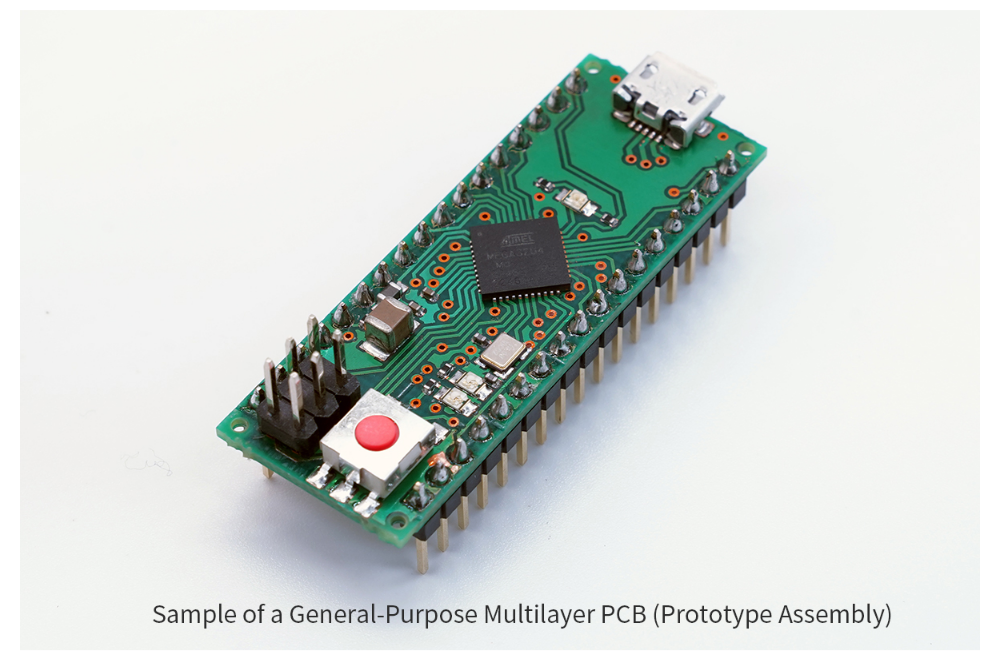
Elephantech Unveils General-Purpose Multilayer PCBs With SustainaCircuits™ Technology
Elephantech Inc.
Elephantech has been mass-producing SustainaCircuits™, innovative printed circuit boards (PCBs) that reduce copper usage by 70-80% using printing technology.

Powering Sustainability through Collaborative Design
STMICROELECTRONICS K.K.
STMICROELECTRONICS, ELEPHANTECH Collaboration on reducing the carbon footprint (PCF) of a working solution for industrial sustainability.
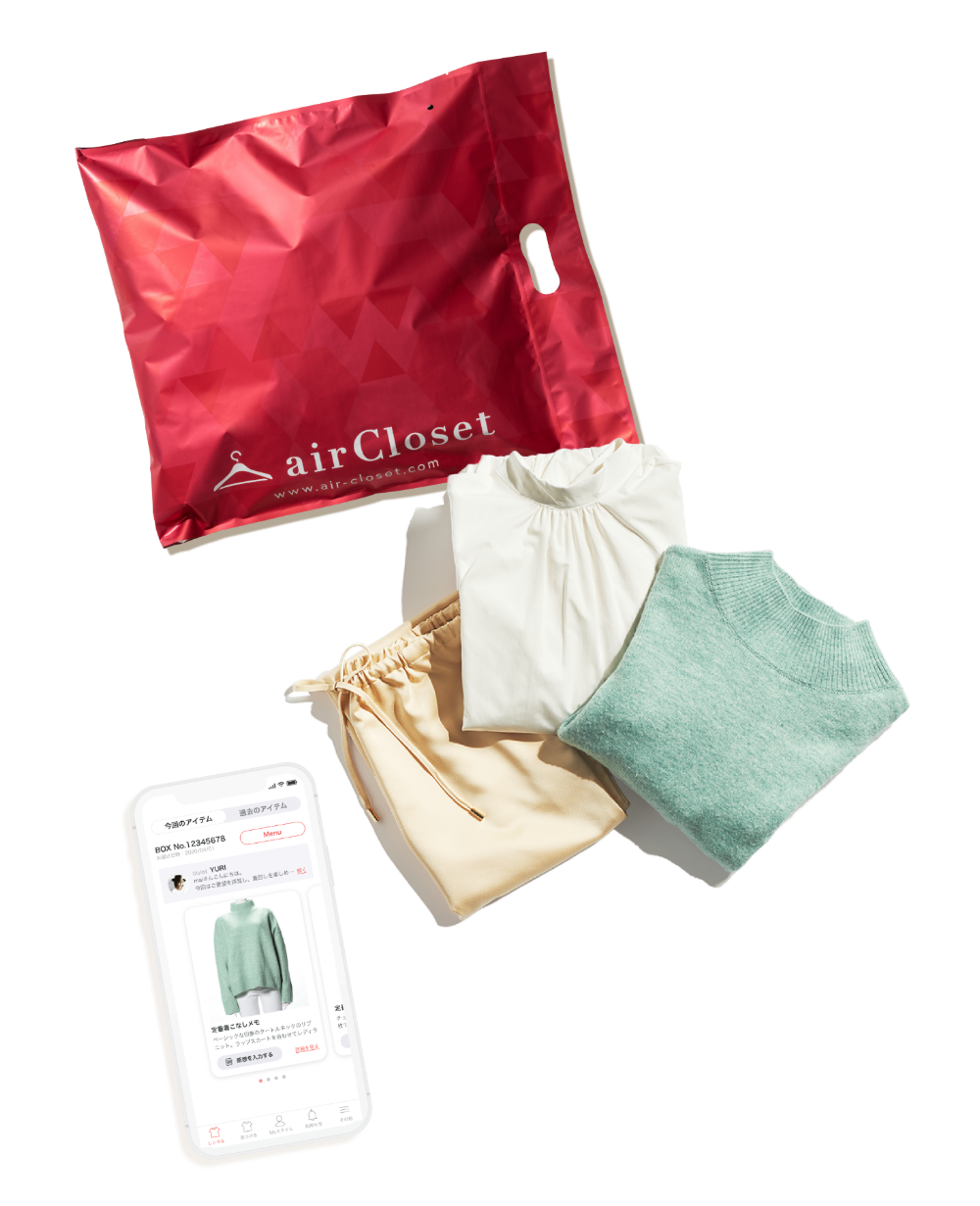
Fashion sharing service for everyday clothes to decarbonize and reduce clothing waste
airCloset, Inc.
airCloset offers a subscription-based service that allows customers to rent and enjoy outfits coordinated by professional stylists based on their body type, preferences, and intended usage. The service is accessible nationwide in Japan with a simple online registration. Customers can enjoy the delivered clothing, return it, and receive their next set of outfits within a few days.
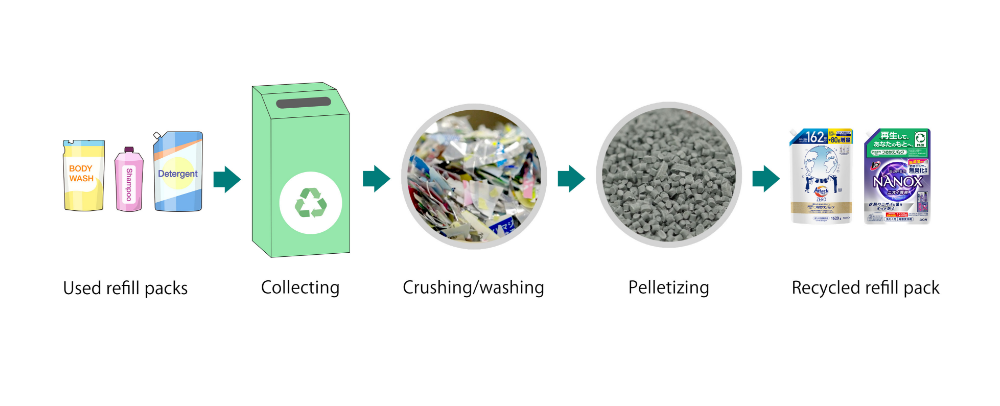
Collection of refill packs and film-to-film recycling
Kao Corporation Lion Corporation Ito-Yokado Co., Ltd. Welcia Yakkyoku Co., Ltd. Hamakyorex Co., Ltd. The City of Kamakura
Kao developed a technology to recycle refill packs into refill packs, and launched film-to-film recycled products with Lion, a competitor in the same industry. Ito-Yokado and Welcia Yakkyoku set up collection boxes in their stores to collect refill packs and sold film-to-film recycled products. Hamakyorex established an efficient aggregation system using return delivery to Welcia Yakkyoku.

Contribution to Circular Economy through the Provision of Our Unique ESG Financing Framework "MY Sustainable Finance"
MEIJI YASUDA LIFE INSURANCE COMPANY
To meet the diverse ESG financing needs of corporate customers, we have established and started operating "MY Sustainable Finance," our unique comprehensive ESG financing framework that covers three products: "Green Loans," "Social Loans," and "Sustainability-Linked Loans."
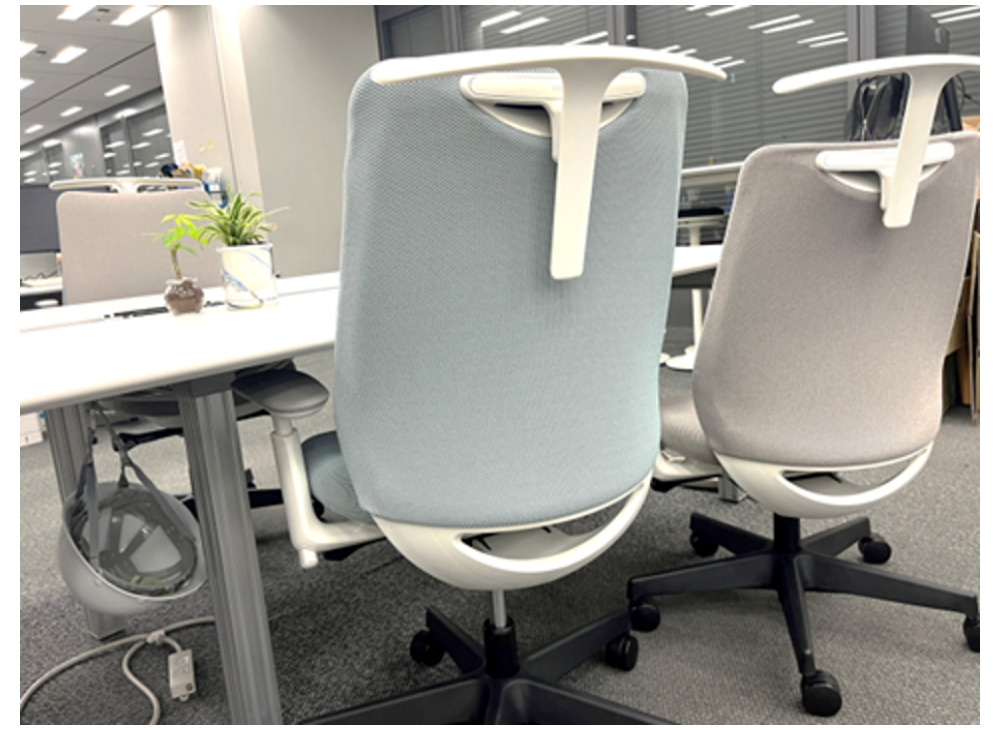
Efforts to Reduce Plastic Emissions and Promote Recycling in Business Activities
MEIJI YASUDA LIFE INSURANCE COMPANY
・Introduce office chairs that offset all GHG emissions throughout their lifecycle (from raw material procurement to production, distribution, sales, and disposal after use). ・Contribute to effective resource use and waste reduction by introducing office chairs made of recycled resin legs from collected used products and upholstery made from recycled waste fabric and domestic used fishing nets. ・Switch plastic files used in business activities to LIMEX material or paper files to reduce the use of plastic products.
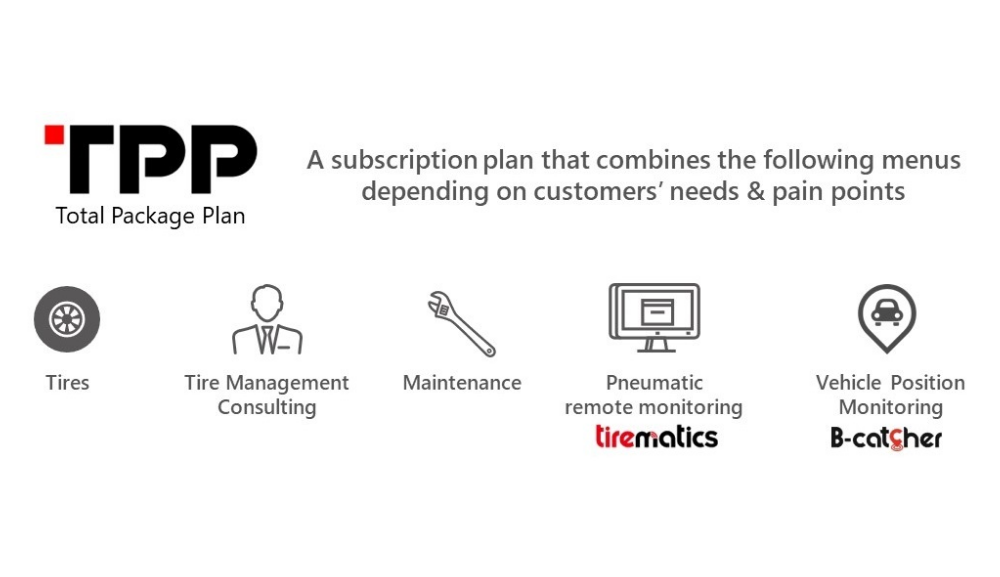
Contributing to the Effective Use of Resources through Remote Tire Pressure Monitoring Services
Bridgestone Corporation TRANSTRON Inc. Yazaki Energy System Corporation
- Bridgestone / Bridgestone Tire Solution Japan Co., Ltd. (hereinafter referred to as "Bridgestone"): Planning, development, and provision of tire related solution services which consist of tire supply, tire maintenance, remote tire pressure monitoring, etc.
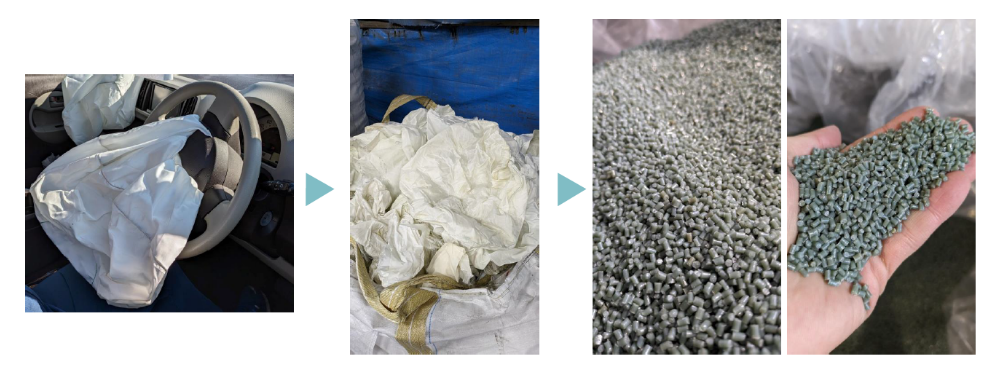
Recovery and Reuse of Auto Parts from End-of-Life Vehicles
Tokio Marine Holdings, Inc.
When an automobile accident happens and its insurance company pay the claim in full amount of the automobile insurance, the ownership of the vehicle is transferred from the insurance policyholder to the insurance company. As a non-life insurance company, we acquire a large number of end-of-life vehicles nationwide as a result of automobile accidents. In order to reduce environmental impact, we have been making efforts to place the acquired end-of-life vehicles into recycling and reuse processes.
